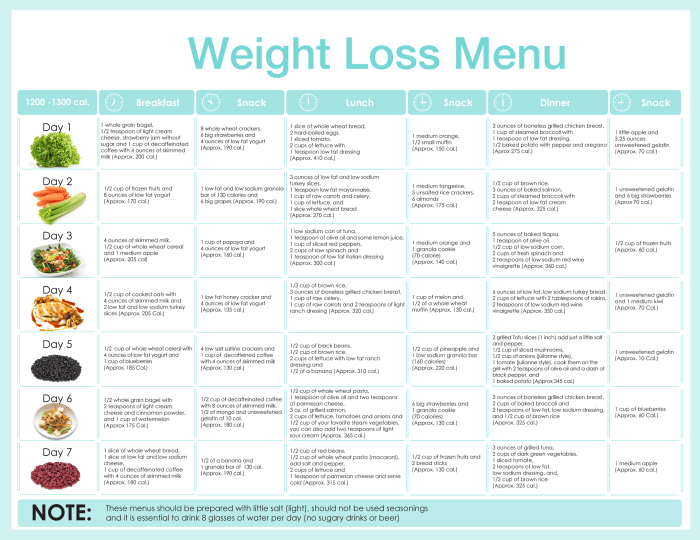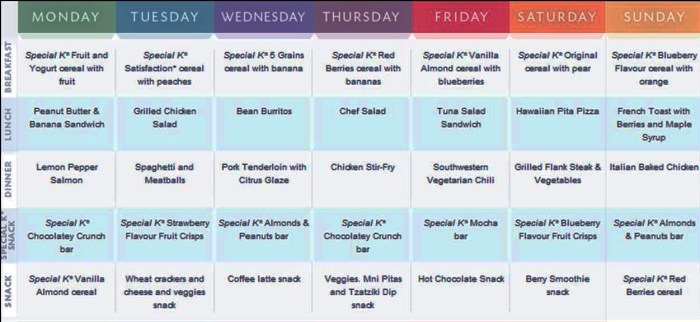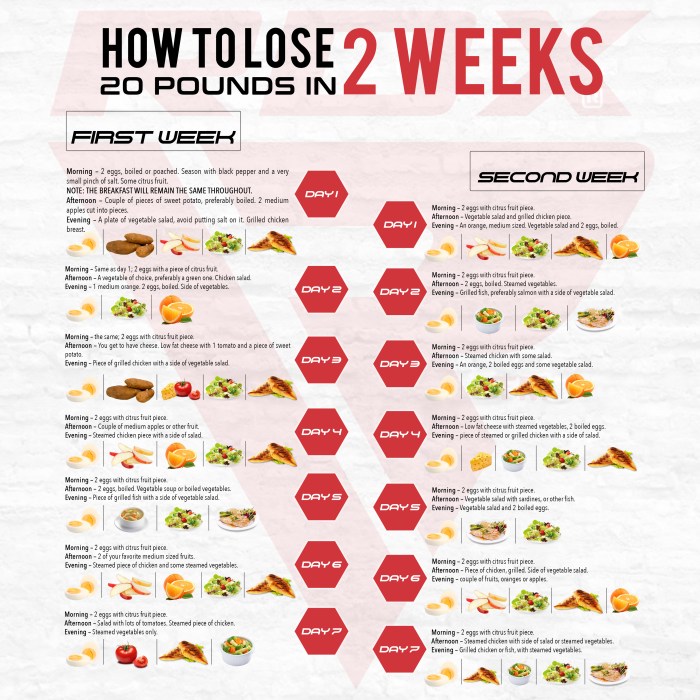Customized meal plans for weight loss over 40 with hormonal changes: a guide to understanding the metabolic changes during and after 40, dietary considerations for customized meal plans, designing meal plans for specific hormonal imbalances, meal frequency and portion control, sample meal plan with detailed nutritional information, incorporating exercise into the plan, lifestyle modifications to support weight loss, monitoring and progress tracking, overcoming challenges and maintaining results, and resources and support for successful weight loss.
As we age, our bodies undergo various hormonal changes that can significantly impact our metabolism and weight. Understanding these changes and adapting our dietary and lifestyle habits accordingly is crucial for effective weight loss over 40. This guide provides a comprehensive overview of customized meal plans tailored to address the unique needs of individuals over 40 experiencing hormonal fluctuations.
Understanding the Metabolic Changes During and After 40
Hey there, weight loss warriors! As we hit the fantastic 40s, our bodies undergo some fascinating hormonal shifts that can affect our metabolism and make shedding those extra pounds a bit more challenging. Let’s dive into the science behind these changes and see how we can tailor our meal plans to conquer them.
Our metabolism, the process that converts food into energy, tends to slow down as we age. This is partly due to a decrease in muscle mass, which is a major metabolic tissue. Additionally, hormonal fluctuations, particularly the decline in estrogen and progesterone in women and testosterone in men, can further impact our metabolism.
Impact on Weight Loss
These metabolic changes can make it harder to lose weight and keep it off. The slower metabolism means we burn fewer calories at rest and during exercise. The hormonal shifts can also affect our appetite, cravings, and energy levels, making it more difficult to stick to a healthy diet and fitness routine.
Customized Meal Plans
To combat these challenges, customized meal plans are crucial. They should be tailored to our individual needs, considering our age, gender, activity level, and hormonal status. By incorporating nutrient-rich foods that support hormonal balance and boost metabolism, we can create a plan that helps us reach our weight loss goals.
Dietary Considerations for Customized Meal Plans
Dietary considerations are crucial for customized meal plans designed for individuals over 40. As we age, our bodies undergo hormonal changes that affect our metabolism and nutrient requirements. Understanding these changes and adapting our dietary intake accordingly is essential for successful weight loss.
Essential Macronutrient Requirements
- Protein:Protein is essential for maintaining muscle mass, which is important for metabolism and overall health. Individuals over 40 should aim for 1.2-1.7 grams of protein per kilogram of body weight per day.
- Carbohydrates:Carbohydrates provide energy and fiber. Choose whole grains, fruits, and vegetables over refined carbohydrates.
- Fat:Healthy fats support hormone production, brain function, and cell growth. Include healthy fats from sources like olive oil, avocados, and nuts in your diet.
Nutrient-Rich Food Groups
Focus on nutrient-rich food groups that provide essential vitamins, minerals, and antioxidants:
- Fruits and vegetables:Rich in vitamins, minerals, and fiber.
- Lean protein:Provides essential amino acids for muscle growth and repair.
- Whole grains:High in fiber, vitamins, and minerals.
- Healthy fats:Supports hormone production and overall health.
Importance of Hydration
Staying hydrated is crucial for weight loss. Water helps boost metabolism, suppress appetite, and flush out toxins. Aim for 8-10 glasses of water per day.
Designing Meal Plans for Specific Hormonal Imbalances
As we navigate the hormonal shifts that accompany our 40s, understanding the relationship between these imbalances and weight gain becomes crucial. Customized meal plans can address specific hormonal disruptions, promoting weight loss and overall well-being.
Hormonal imbalances can disrupt metabolism, increase appetite, and lead to weight gain. By tailoring meal plans to address these imbalances, we can support hormonal regulation and facilitate effective weight loss.
Estrogen Dominance
Estrogen dominance occurs when estrogen levels are higher than progesterone. This imbalance can cause weight gain around the hips, thighs, and buttocks, as well as bloating and fluid retention.
- Meal Plan Recommendations:Focus on cruciferous vegetables (broccoli, cauliflower), fiber-rich fruits (berries, apples), and lean protein. Avoid processed foods, sugary drinks, and excessive red meat.
Thyroid Issues
Thyroid imbalances, such as hypothyroidism, can slow metabolism and lead to weight gain. Symptoms include fatigue, constipation, and dry skin.
Hey there, weight loss warriors over 40! If you’re looking for a customized meal plan that takes into account your hormonal changes, you’re in the right place. But wait, before we dive into the details, let’s get some weight loss motivation for women over 40 . Remember, age is just a number, and it’s never too late to achieve your weight loss goals.
Now, back to our meal plans: we’ll work with you to create a plan that fits your unique needs and helps you shed those extra pounds for good.
- Meal Plan Recommendations:Include foods rich in iodine (seafood, dairy), selenium (Brazil nuts, tuna), and zinc (oysters, beans). Limit processed foods, gluten, and soy.
Cortisol Dysregulation
Chronic stress can elevate cortisol levels, leading to increased appetite and weight gain around the abdomen. Cortisol also disrupts sleep and metabolism.
- Meal Plan Recommendations:Prioritize stress-reducing foods like berries, dark chocolate, and nuts. Include calming herbs like chamomile and lavender in tea or supplements. Limit caffeine and alcohol.
Addressing underlying hormonal issues is essential for effective weight loss. By designing meal plans that target specific imbalances, we can support hormonal regulation, reduce symptoms, and promote a healthier weight.
Hey there, if you’re over 40 and looking to shed some pounds, you know the struggle is real! Hormonal changes can make it tough, but don’t give up just yet. Customized meal plans can help you lose weight effectively. But hey, if you’ve tried everything and still can’t seem to budge the scale, Weight loss surgery after 40 might be an option worth considering.
Remember, it’s never too late to get healthy! So, let’s get back to those customized meal plans and conquer this weight loss journey together.
Meal Frequency and Portion Control
Maintaining a healthy weight over the age of 40 requires understanding the hormonal changes that occur during this time. One crucial aspect of weight management is regulating meal frequency and portion control.
Benefits of Regular Meals for Hormonal Balance
- Stabilizes blood sugar levels:Eating regular meals helps prevent blood sugar spikes and crashes, which can trigger hormonal imbalances.
- Regulates insulin production:Insulin is a hormone that helps cells absorb glucose from the bloodstream. Regular meals keep insulin levels stable, preventing insulin resistance.
- Reduces inflammation:Chronic inflammation can contribute to hormonal imbalances. Eating regular meals helps reduce inflammation by maintaining a steady supply of nutrients.
Appropriate Portion Sizes and Meal Frequency
Determining appropriate portion sizes depends on individual factors like age, activity level, and weight loss goals. However, a general guideline is to use the “plate method”:
- Half the plate:Vegetables and fruits
- Quarter of the plate:Lean protein
- Quarter of the plate:Whole grains or healthy fats
As for meal frequency, aim for 3-5 small meals throughout the day instead of 1-2 large ones. This helps keep your metabolism active and prevents overeating.
Mindful Eating and Intuitive Eating
Mindful eating involves paying attention to your hunger and fullness cues while eating. It helps you become more aware of your food choices and prevents overeating. Intuitive eating is similar, but it also encourages listening to your body’s cravings and eating what feels good, while still making healthy choices.
Sample Meal Plan with Detailed Nutritional Information: Customized Meal Plans For Weight Loss Over 40 With Hormonal Changes
Here’s a sample meal plan tailored for individuals over 40 experiencing hormonal changes. It provides a variety of meal options and includes detailed nutritional information to help you make informed choices.
Breakfast
Kickstart your day with a nutritious breakfast that balances protein, fiber, and healthy fats.
- Oatmeal with berries and nuts:1 cup cooked oatmeal, 1/2 cup berries, 1/4 cup chopped nuts
- Yogurt parfait:1 cup Greek yogurt, 1/2 cup granola, 1/4 cup berries
- Scrambled eggs with whole-wheat toast:2 eggs, 2 slices whole-wheat toast
Lunch
Choose lunches that are filling and satisfying, focusing on lean protein, vegetables, and whole grains.
- Grilled chicken salad:4 ounces grilled chicken, 1 cup mixed greens, 1/2 cup chopped vegetables, 2 tablespoons low-fat dressing
- Tuna sandwich on whole-wheat bread:1 tuna salad sandwich on 2 slices whole-wheat bread
- Lentil soup with whole-grain bread:1 bowl lentil soup, 2 slices whole-grain bread
Dinner
End your day with dinners that are rich in protein, vegetables, and healthy fats.
- Grilled salmon with roasted vegetables:4 ounces grilled salmon, 1 cup roasted vegetables
- Chicken stir-fry with brown rice:4 ounces chicken, 1 cup stir-fried vegetables, 1/2 cup brown rice
- Baked tofu with quinoa:4 ounces baked tofu, 1 cup cooked quinoa, 1/2 cup steamed vegetables
Snacks
Incorporate healthy snacks throughout the day to prevent hunger and cravings.
- Fruit:1 apple, 1 banana
- Vegetable sticks:1 cup carrot sticks, 1 cup celery sticks
- Nuts:1/4 cup almonds, 1/4 cup walnuts
Incorporating Exercise into the Plan
Exercise plays a crucial role in hormonal balance and weight loss, especially for individuals over 40. Regular physical activity helps regulate hormone levels, improves insulin sensitivity, and boosts metabolism.
When designing an exercise plan, it’s important to choose activities that are enjoyable and sustainable. Aim for a combination of cardiovascular exercises, strength training, and flexibility exercises.
Hey there, ladies! Looking to shed some pounds after 40? Our customized meal plans take into account those pesky hormonal changes that come with age. We’ve got you covered with a link to our article on Weight loss after 40 female hormone changes . It’s got all the info you need to understand how your hormones affect your weight loss journey.
Plus, our meal plans are tailored to help you navigate these changes and reach your weight loss goals.
Appropriate Exercise Types and Intensity Levels
For cardiovascular exercises, choose activities that elevate your heart rate and make you sweat, such as brisk walking, jogging, swimming, or cycling. Start gradually and gradually increase the intensity and duration of your workouts.
Benefits of Strength Training
Strength training is essential for maintaining muscle mass, which declines with age. By incorporating exercises like weightlifting, resistance band exercises, or bodyweight exercises into your routine, you can help boost your metabolism, improve bone density, and reduce the risk of injuries.
Lifestyle Modifications to Support Weight Loss
Managing your weight over 40 requires more than just diet and exercise. Lifestyle modifications are crucial to support your weight loss journey and promote overall well-being.
One key factor that impacts hormonal balance and weight gain is stress. Chronic stress can disrupt hormone levels, leading to increased cortisol, which can promote weight gain around the midsection.
Managing Stress
- Practice relaxation techniques such as yoga, meditation, or deep breathing exercises.
- Engage in activities that bring you joy and reduce stress levels.
- Connect with loved ones and seek support when needed.
Another important lifestyle factor is adequate sleep. When you don’t get enough sleep, your body produces more ghrelin, the hunger hormone, and less leptin, the fullness hormone. This hormonal imbalance can lead to increased cravings and overeating.
Importance of Sleep
- Aim for 7-9 hours of quality sleep each night.
- Establish a regular sleep-wake cycle, even on weekends.
- Create a relaxing bedtime routine to promote sleep.
Monitoring and Progress Tracking
Tracking your progress is essential for staying motivated and accountable on your weight loss journey. It helps you stay focused on your goals, make necessary adjustments to your plan, and celebrate your successes.Setting realistic weight loss goals is crucial.
Aim to lose 1-2.5 pounds per week, as rapid weight loss can be unhealthy and unsustainable. Focus on making gradual, consistent changes to your lifestyle and diet rather than drastic measures.
Body Composition Analysis
Body composition analysis provides a more accurate measure of your progress than just relying on weight alone. It measures your body fat percentage, muscle mass, and hydration levels. This information can help you track your progress and make adjustments to your plan accordingly.
Overcoming Challenges and Maintaining Results
Losing weight over 40 with hormonal changes can be challenging, but it’s possible. Common obstacles include:
-
-*Hormonal imbalances
Estrogen and progesterone levels decline with age, affecting metabolism and appetite.
-*Slowed metabolism
Metabolism naturally slows down with age, making it harder to burn calories.
-*Increased stress
Stress can lead to hormonal imbalances and unhealthy eating habits.
Resources and Support for Successful Weight Loss
Maintaining a healthy weight during and after the age of 40 requires support and guidance. Several resources are available to help you achieve your weight loss goals effectively and sustainably.
Joining support groups or connecting with online communities provides a platform to share experiences, offer encouragement, and learn from others going through similar challenges. These groups foster a sense of accountability and support, enhancing motivation and promoting progress.
Working with a Registered Dietitian or Healthcare Professional, Customized meal plans for weight loss over 40 with hormonal changes
Consulting with a registered dietitian or healthcare professional is highly beneficial. They possess specialized knowledge and experience in nutrition and weight management. They can assess your individual needs, develop personalized meal plans, and provide ongoing support and guidance. Their expertise can help you overcome challenges, adjust your plan as needed, and ensure you’re making progress safely and effectively.
Seeking Professional Guidance When Necessary
If you encounter difficulties or plateaus in your weight loss journey, don’t hesitate to seek professional guidance. Underlying hormonal imbalances or medical conditions may require specific interventions or adjustments to your plan. Consulting with a healthcare professional can help identify any potential issues and develop appropriate strategies to address them, ensuring your weight loss efforts are supported by a comprehensive approach.
End of Discussion
Embracing a customized meal plan that aligns with your body’s hormonal shifts is key to achieving sustainable weight loss over 40. By understanding the impact of hormonal changes on metabolism, making informed dietary choices, incorporating regular exercise, and adopting healthy lifestyle habits, you can overcome the challenges associated with weight loss during this stage of life.
Remember, progress is not always linear, and there may be setbacks along the way. Embrace a positive mindset, seek support when needed, and stay committed to your goals. With the right strategies and a customized meal plan, you can achieve your weight loss goals and live a healthier, more vibrant life.
Clarifying Questions
What are the key hormonal changes that occur over 40?
As we age, our bodies produce less estrogen, progesterone, and testosterone. These hormonal changes can lead to a decrease in metabolism, increased body fat, and difficulty losing weight.
How do customized meal plans help with weight loss over 40?
Customized meal plans are tailored to your individual needs, taking into account your age, hormonal profile, and lifestyle. They provide a balanced and nutritious diet that supports hormonal balance and promotes weight loss.
What are some tips for creating a customized meal plan?
When creating a customized meal plan, focus on consuming nutrient-rich foods from all food groups. Include plenty of fruits, vegetables, lean protein, and whole grains. Limit processed foods, sugary drinks, and unhealthy fats.
How often should I eat to support hormonal balance?
Eating regular meals throughout the day helps to keep your blood sugar levels stable and supports hormonal balance. Aim for three main meals and two to three snacks per day.
What types of exercise are best for weight loss over 40?
Incorporating a combination of cardiovascular exercise, strength training, and flexibility exercises is ideal for weight loss over 40. Aim for at least 150 minutes of moderate-intensity exercise or 75 minutes of vigorous-intensity exercise per week.



